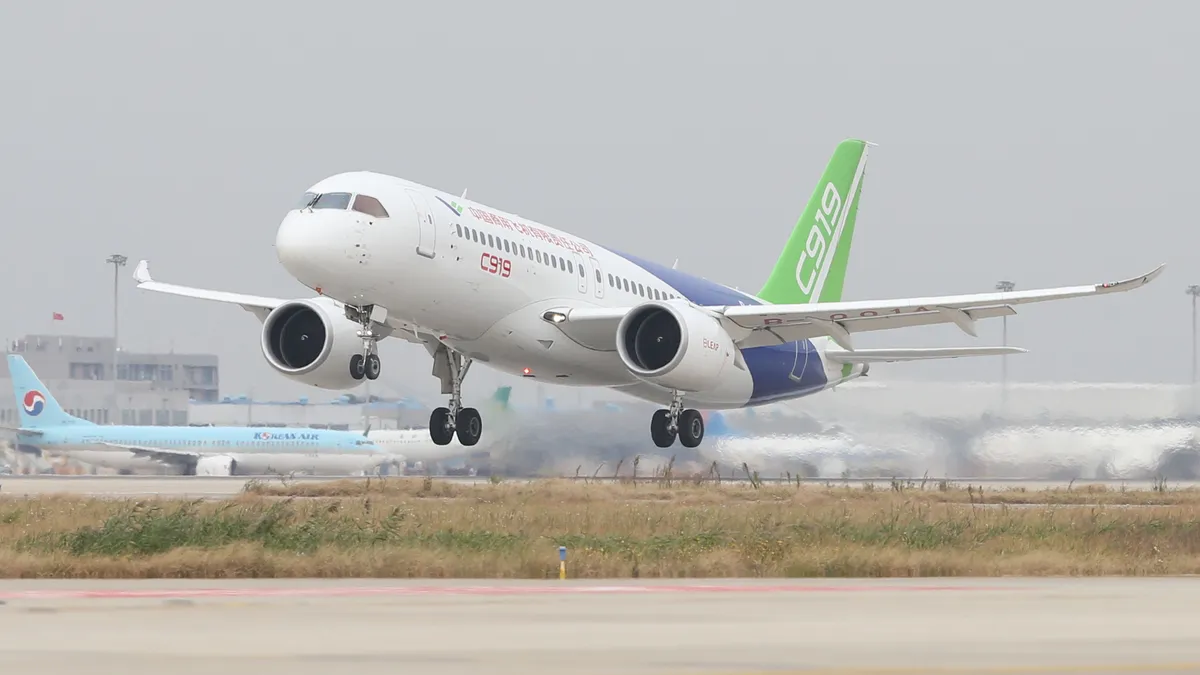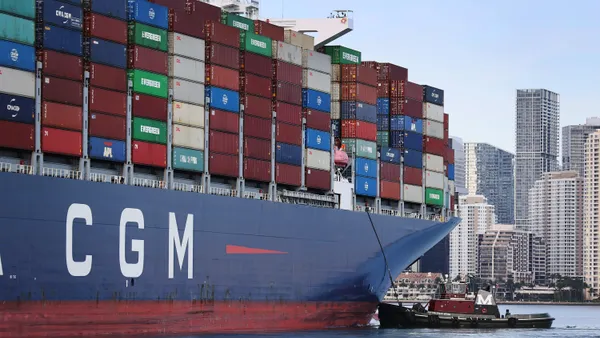Dive Brief:
- Sixty companies, including airlines, airports and fuel suppliers, have committed to making sustainable aviation fuels 10% of global jet fuel supply by 2030. Boeing, BP, Deutsche Post DHL Group and Delta are among the industry stakeholders who signed the commitment, announced by the World Economic Forum's Clean Skies for Tomorrow Coalition in September.
- Accelerating the supply and use of sustainable aviation fuels, which use alternatives to crude oil, will help put the aviation industry on a path to net-zero carbon emissions by 2050, the World Economic Forum said in a news release.
- British Airways could power its flights with sustainable fuel as soon as next year, Chairman and CEO Sean Doyle said in a statement. The airline worked with BP to source enough of it for flights between London, Glasgow and Edinburgh for the upcoming United Nations Climate Change Conference, reducing emissions by up to 80% versus traditional jet fuel.
Dive Insight:
Sustainable aviation fuels, known in the industry as SAFs, have been highlighted as a critical piece in reducing emissions as sustainability becomes a larger priority among cargo shippers. SAFs' ability to power large airplanes is something electric power can't currently offer, and UPS called it "the only decarbonization path for the aviation sector" in its Global Reporting Initiative report.
But SAFs have barely made a dent in the global jet fuel supply. Fewer than 200,000 metric tons were produced in 2019, which amounts to less than 0.1% of the fuel commercial airlines used that year, according to a report by the WEF and McKinsey.
High costs and limited supply have limited widespread adoption of SAFs, leading to a "chicken and egg" problem where producers and carriers are wary of shouldering the initial investment burden to make SAF competitive, the WEF news release said.
"Costs will fall if production scales up, but fuel providers are facing headwinds due to high price pressure on low SAF demand, and high risks associated with policy and investment uncertainty," the WEF said.
The signatories of the 2030 commitment are pushing for SAF production at a commercial scale to spur widespread adoption, and the WEF said the commitment should provide a boost to investor confidence. With or without investor confidence, the airlines that reduce their carbon footprints the fastest will be used more by shippers trying to achieve their own sustainability goals, Greg Bollefer, executive vice president of commercial and product development at freight forwarder Green Worldwide Shipping, said in August.
Industry stakeholders are also pushing for governments to get involved in the promotion of SAFs. Glyn Hughes, director general of The International Air Cargo Association, said in August that governments should subsidize or invest in the research and development of SAFs to drive production costs down. FedEx Chief Sustainability Officer Mitch Jackson touted the Sustainable Skies Act as a bill in Congress that could encourage more production, but it hasn't moved past the introductory phase in the House and Senate.














